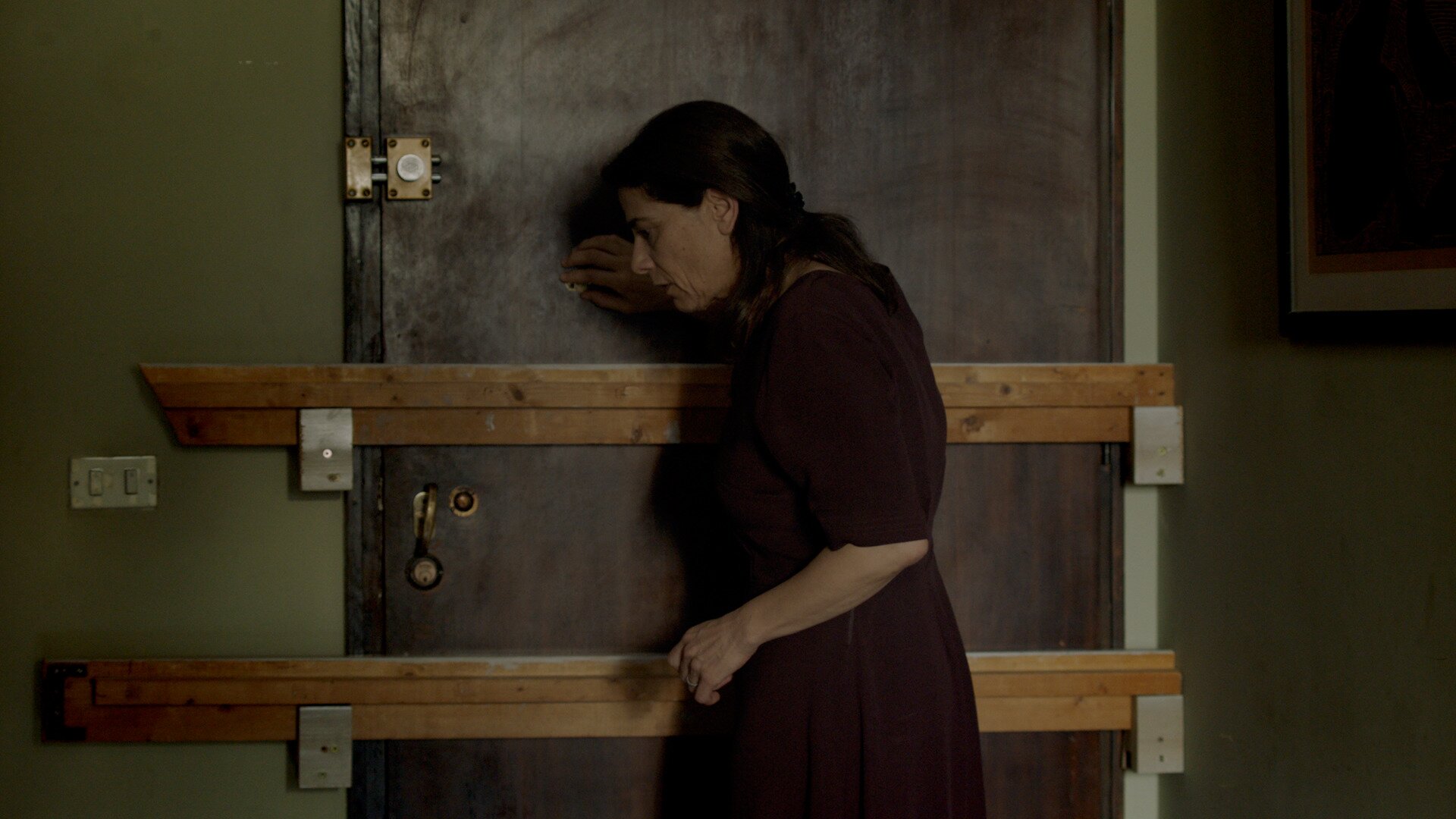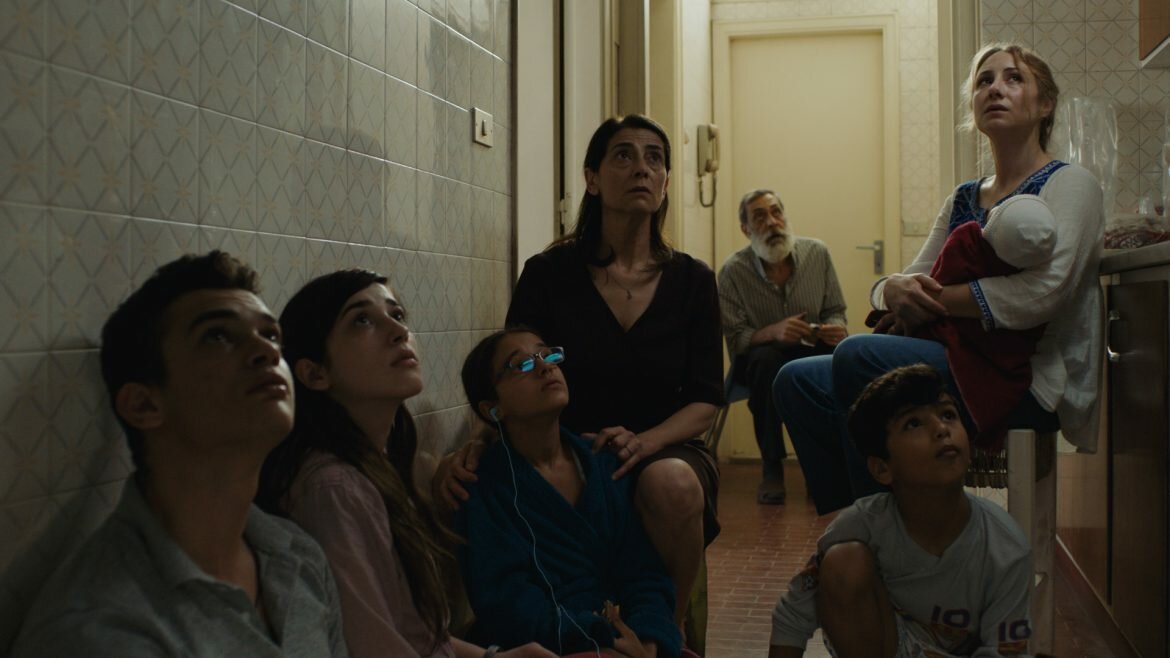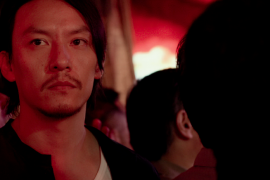Considering the fact that the Berlinale claims to be a political festival, it seems illogical that Insyriated didn’t make it into this years competition selection. The only possible explanation appearing to be that it would have most likely have won, and given that last years winner was the politically charged Fuccoammare, perhaps the programmers didn’t want to risk a similar film winning two years in a row. However, being awarded the Panorama Audience Award, Insyriated firmly established itself as one of the best films in this years Berlinale.
Portraying claustrophobic family life lived within the Syrian war zone, Insyriated redefines the genre of ‘war movie.’ Philippe Van Leeuw holds the viewer hostage alongside the family, who are trying to survive day by day within the apartment. Creating a soundscape of constant sniper fire in combination with the eternal drone of over head helicopters, Van Leeuw engenders a feeling of oppressive confinement akin to being kept within a increasingly shrinking cell.
The family is run by the mother, Oum Yazan (an incredibly strong performance by Hiam Abbas), with an iron fist. The father is notably absent when we meet the family but Oum is joined by her two daughters, one of her daughter’s boyfriends, her son, their grandfather and a young neighbouring family with a newborn baby and their housemaid. With her strong dedication to implementing a regime of resolute rules, Oum creates a sense of normality which manages to keep everyone sane in this otherwise completely insane situation.
Here, Philippe Van Leeuw shows us that normality is a choice that needs to be fabricated. Weaving together small moments of cinematic beauty, he focuses on minute moments which are intrinsic to the human experience: a shot of toothbrushes, each belonging to a different inhabitant of the small space, or the boy and his grandfather breaking bread and sharing a playful smile. While seemingly small, each of these quiet scenes is charged with a subtle volatility poised to make the audience gasp.

While sparing us the visual depiction of the violence taking place on the streets, Van Leeuw does not let us off lightly. After a knock at the door introduces the characters to a group of government officials demanding access to the apartment, it is clear that things are not going to end well. As these intruders make their way into the apartment, most of the family take refuge inside the kitchen, apart from Halima (Diamand Bou Abboud), Oum’s female neighbour and her child who do not make it in time, resulting in a horrifically gruelling rape scene which refuses the audience the choice to look away.
The camera lingers on Halima’s face for ten full minutes. Van Leeuw forcing us to observe a life lived without autonomy, and a life that is being lived right now, thousands of times over. When Oum tentatively asks Halima “are you alright?” After the intruders leave, we can’t help but wince at this distinctly human question ringing out hollowly in a world in which nothing is ‘alright’ any more.

If Insyriated teaches us anything, it is that we should be more compassionate towards others. This sentiment was echoed by Berlinale Jury Member Olafur Eliasson when he was asked during a press conference what his expectations are when sitting down to watch a film:
“I think when I enjoy a great movie it is as if the movie allows me to see myself. The movie puts language to feelings that I have, but that I have not been able to fully verbalise. So the movie reflects an emotional need that I have. And I say ‘oh, I know that feeling, this is me’ and in that way it is almost as if I am not watching the movie, but the movie is in fact watching me. And this is such a great moment of being seen. I am being recognised, listened to. I exist! And I think that is what great art does: it allows the viewer and the engaged person to feel that they are a part of the world, that they are not excluded or indifferent.”
This is precisely how Insyriated works. Not once are the characters pitied. Each of them have agency, no matter how small their confines and even if they are refused a clear exit. However, a resonating sense of despair lingers long after watching the movie. It is a familiar despair which accompanies the headless, senseless and historically repetitive acts of violence which come with war. Consequently, leaving your seat at the end of the film becomes an excruciating experience; where we have the precious freedom to change our immediate environment, to go to a bar to numb the sorrows of this harrowing cinematic experience, millions of families remain, trapped inside their homes, as savage warfare rages just beyond their door.




